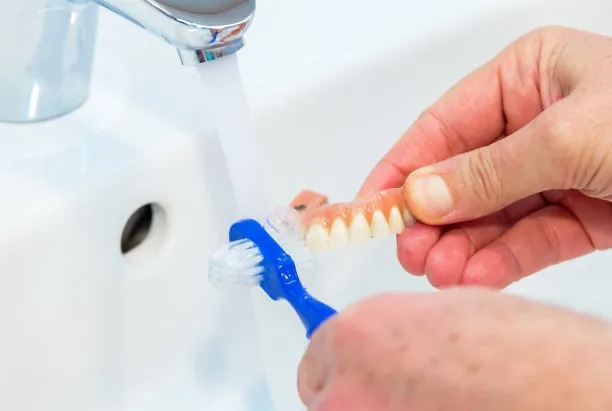Summary: Periodontal disease significantly affects overall health and wellbeing, going beyond oral health to impact systemic conditions. This article explores the multifaceted relationships between periodontal disease and various health issues, detailing comprehensive prevention and treatment strategies. It emphasizes the need for early detection, effective management, and the importance of maintaining regular dental check-ups. By understanding these connections and employing proactive measures, individuals can enhance their oral health and overall quality of life.
1. The Connection Between Periodontal and Systemic Health

Research has increasingly shown that periodontal disease is not just confined to oral health; it has far-reaching implications for systemic health. One of the most notable connections is with cardiovascular disease. Patients suffering from periodontal disease often have higher rates of heart-related issues, as inflammation and bacterial spread can affect the cardiovascular system.
Moreover, the relationship between periodontal disease and diabetes is particularly significant. Diabetic individuals are more susceptible to periodontal infections, which can, in turn, lead to poorer blood sugar control. This bidirectional relationship highlights the need for managing oral health as part of diabetes care.
Finally, the link between periodontal disease and respiratory illnesses cannot be overlooked. Bacteria from the oral cavity can travel to the lungs, potentially leading to infections or exacerbating existing respiratory conditions, showcasing the systemic impact of dental health.
2. The Role of Prevention in Managing Periodontal Disease
Prevention is key to combating periodontal disease and its systemic repercussions. Regular dental check-ups play a crucial role in identifying initial stages of gum disease. Early detection allows for timely interventions, which can prevent progression to more severe stages that may affect overall health.
Oral hygiene practices are essential in preventing periodontal disease. Brushing twice a day and flossing daily help remove plaque and prevent the buildup of tartar, which can lead to gingivitis and more serious periodontal issues. Education on proper techniques and tools can empower individuals to take responsibility for their oral health.
Diet also plays a significant role in prevention. A balanced diet rich in vitamins and minerals can bolster immune function and reduce inflammation, thus serving as a protective factor against periodontal disease. Increasing awareness about dietary choices can lead to healthier gums and overall health benefits.
3. Comprehensive Treatment Strategies for Periodontal Health
When periodontal disease has progressed, comprehensive treatment strategies are essential. Scaling and root planing, a deep cleaning procedure, is often the first line of treatment. It removes plaque and tartar from below the gum line, helping to reduce inflammation and promote healing.
In certain cases, advanced treatments such as antibiotic therapy or surgical intervention may be required. Antibiotics can help control bacterial infections, while surgical options like flap surgery may be necessary to restore gum health. A tailored treatment plan based on individual needs is vital for successful outcomes.
Furthermore, post-treatment maintenance is crucial to prevent recurrence. Regular follow-ups and professional cleanings help ensure that the improvements achieved during treatment are sustained over time, ultimately leading to a better quality of life.
4. The Importance of Patient Education and Awareness
Patient education is a crucial component in the fight against periodontal disease. Increased awareness about the implications of poor oral health can motivate individuals to prioritize dental care. Understanding the links between periodontal disease and systemic health fosters a more proactive attitude toward oral hygiene.
Community outreach programs can play an integral role in this educational process. By providing information on prevention, treatment options, and the importance of regular dental visits, these programs can improve public understanding and encourage healthier behaviors.
Ultimately, empowering patients with knowledge can lead to better health outcomes. An informed patient is more likely to engage in preventive practices, adhere to treatment plans, and communicate effectively with healthcare providers about their needs.
Summary:
Understanding the impact of periodontal disease on overall health necessitates a comprehensive approach to prevention and treatment. The connections between oral and systemic health are profound, underscoring the importance of regular monitoring and early interventions. Awareness and education are essential in the fight against periodontal disease, enhancing both dental and systemic health.
This article is compiled by Vickong Dental and the content is for reference only.
Vickong Dental
Vickong Dental is a large medical group established in Hong Kong in 2008 by professors from well-known medical universities in Guangdong and Hong Kong, as well as medical doctors from key national '985' universities (including Master's supervisors and senior professors). The chain of branches brings together expert dentists with PhDs and Master's degrees from Hong Kong and Mainland China, committed to providing high-quality dental treatment.
"Vickong Dental Practices the University Motto of 'Healing and Serving Society,' with a Stable Operation for Sixteen Years. It Has Been honored with Hong Kong Enterprise Leaders's Choice,' and is a Global Trusted Implant Center for the Nobel Implant System. Recommended by Hong Kong Metro Broadcast and Guangdong Television, it Serves Customers from Over Thirty Countries and Regions, Gaining the Trust and Favor of Citizens from the Guangdong-Hong Kong-Macau Greater Bay Area and Surrounding Cities.

Thousands of customers' unanimous praise
The most recognized and highly recommended dental service by customers in the Guangdong-Hong Kong-Macau Greater Bay Area
We Ensure You Receive Detailed Care and Attention Here
Hong Kong standards, Shenzhen prices, Your Trusted English-speaking dentists

Vickong Dental Medical-Grade Instrument Disinfection Process
Vickong Dental Medical-Grade Instrument Disinfection Process

Vickong Dental Chain: A Warm and Comfortable Environment for Treatment






Appointment Hours

Q&A
Why choose Vickong Dental?
Vickong Dental practices the university motto 「Medicine to Benefit Society」, with each branch bringing together highly qualified dentists with doctoral and master’s degrees from Hong Kong and the Mainland, and has maintained seventeen years of steady operation。Recipient of 「2024 Hong Kong Enterprise Leaders Brand」, 「2025 Hong Kong Enterprise Leaders Brand」, a Nobel Biocare Global Trusted Implant Center, and a brand recommended by Metro Radio Hong Kong and Guangdong TV。
To date, we have served customers from more than thirty countries and regions,earning exceptionally high word-of-mouth recognition and trusted recommendations from residents across the Guangdong-Hong Kong-Macao Greater Bay Area and surrounding cities
We have eight major branches in Zhuhai、Shenzhen,and a consultation and service assurance center in Hong Kong,so you can book a free consultation at any time for any questions,which is very reassuring.
If I do not accept the quotation after the CT scan, will I be charged??
No! As long as the actual treatment has not started, you will not be charged any fees.
Will there be any additional charges during the treatment process?
No, there won’t be any additional charges. Before treatment begins, we will clearly explain the treatment plan and its corresponding fees. Only after the patient agrees and signs the consent form will we proceed with the dental service.
Can I pay in Hong Kong dollars?
Yes. Vickong Dental accepts payment in Hong Kong dollars. The amount will be converted based on the exchange rate of the day, and the applicable rate will be clearly communicated to you in advance.
Can I reschedule my appointment at any time?
Yes. Please contact us via **WeChat** or **WhatsApp** as early as possible, providing your original appointment time and details, along with your preferred new date and time slot for rescheduling.













